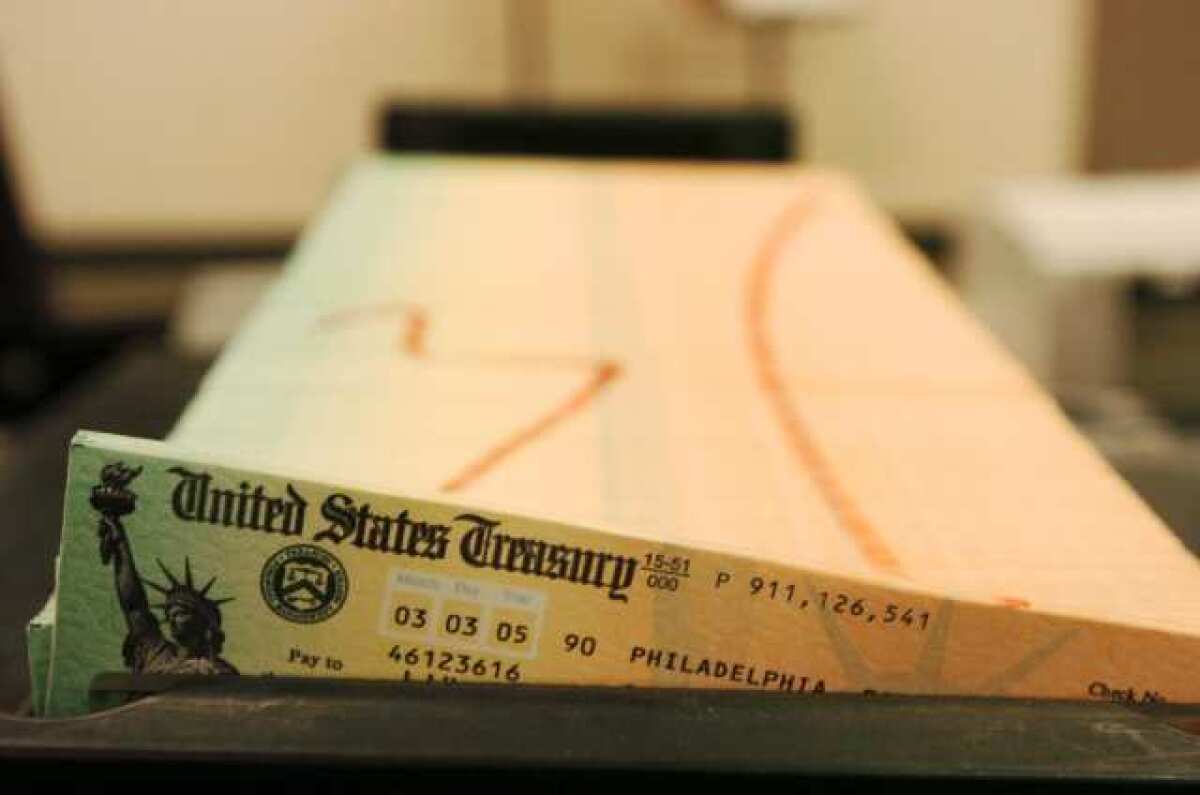This nurse needs a Social Security checkup. Here’s how to check yours

- Share via
Dear Liz: I’m a certified nurse midwife who is salaried. When we are fully staffed, I work 55 hours a week on average. If we cover extra shifts, we are paid a lump sum rather than hourly. (If we were paid hourly, it would work out to far less than minimum wage.) We are paid twice a month, but my pay stub shows that I only work 70 hours per pay period. I work almost that many hours in a single week! When I work extra shifts, it is reported on my check under “miscellaneous” with the lump sum listed. I asked our administrators about this and they just told me it wasn’t a big deal, but I’m not convinced that’s true. Do the hours reported on my paycheck affect my Social Security income later? I just don’t want to lose out on Social Security benefits when I work my butt off!
Answer: The hours you work don’t affect your future Social Security benefit, but your earnings do. At least they should. Your employer is supposed to report your full salary to Social Security, and to deduct the appropriate amount of Social Security tax from your paychecks. If your pay is underreported, your future benefits could be shortchanged.
Here’s a quick way to check if your earnings are being reported properly. On your paycheck, there should be a line that says either “Social Security,” “OASDI” or “FICA.” If the line says Social Security or FICA, the amount listed should be 6.2% of the money you earned for the pay period, up to a maximum annual amount of $8,239.80 for 2019. (There’s a ceiling on the amount of wages subject to Social Security taxes, which this year is $132,900.)
Some employers don’t break out Social Security taxes from Medicare taxes, and include them both in a line for FICA, which stands for Federal Insurance Contributions Act. The FICA amount should be your Social Security tax (6.2% of your earnings up to $132,900) plus 1.45% for Medicare. (There’s no cap, so all earnings are subject to the Medicare tax.)
If the tax amounts shown don’t include that “miscellaneous” lump sum, please call the IRS at 1-800-829-1040 to report the situation.
Tapping retirement funds
Dear Liz: I’m retired, 64 and delaying Social Security for a few years. I want to create a monthly stream of income from $850,000 in retirement funds. It may be needed to show a solid, dependable income so that I can get a mortgage. Is there any way to avoid the 20% federal and 7% state tax withholding? I do realize the amount I withdraw could trigger higher Medicare premiums in the future. The drawdown is $8,300 per month, which leaves me a spendable amount of $6,000.
Answer: Good for you for delaying the start of Social Security, but please get yourself to a fee-only certified financial planner before you tap any of your retirement funds. A 4% initial withdrawal rate from retirement funds is considered sustainable.
The amount you’re contemplating would be nearly three times that. Even if you’re withdrawing at that rate for a limited time, it could leave you without enough money later. And if this high withdrawal rate is the only way you can get the mortgage you want, you may be taking on more debt than you can really afford.
The certified financial planner also can help you with a tax strategy. Tax withholding on retirement income is usually voluntary, but paying the actual tax is mandatory.
The percentage you ultimately pay on the withdrawals will be based on your tax bracket, which could be higher or lower than the 20% federal and 7% state rates you cite.
Before you withdraw anything, you should have a good idea of what the tax bill will be and have plans to cover it. Those could include having the investment company withhold a certain percentage or making quarterly estimated tax payments.
You may have done well with a do-it-yourself approach up to this point, but there are many ways to mess up your finances unknowingly in retirement. You’d be smart to get expert help in creating a tax-efficient withdrawal strategy that maximizes your retirement income while minimizing the risk of running out of cash.
Liz Weston, Certified Financial Planner, is a personal finance columnist for NerdWallet. Questions may be sent to her at 3940 Laurel Canyon, No. 238, Studio City, CA 91604, or by using the “Contact” form at asklizweston.com.
More to Read
Inside the business of entertainment
The Wide Shot brings you news, analysis and insights on everything from streaming wars to production — and what it all means for the future.
You may occasionally receive promotional content from the Los Angeles Times.










